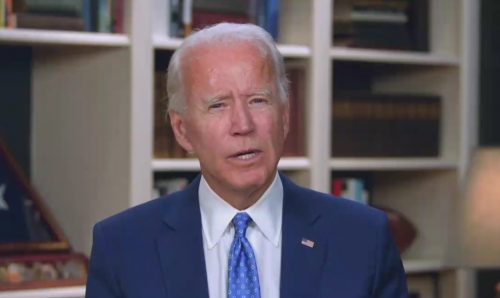
Asian Americans show remarkable cohesion on immigration, environment, guns and education.
Indian Americans (66%) are the most inclined to vote for Joe Biden among Asian American groups, a majority (54%) of whom favor the Democratic presidential candidate, according to a new survey.
In contrast, just 30% Asian Americans planned to support Republican incumbent President Donald Trump in the Nov. 3 presidential election, according to the just released 2020 Asian American Voter Survey.
The survey did not indicate how the historic nomination of Indian American senator Kamala Harris, the first black and South Asian woman to figure on a national ticket, as Biden’s running mate had influenced the voters’ choice.
Biden was strongly favored among all national origin groups surveyed, except Vietnamese Americans. Among Vietnamese registered voters, support is higher for Trump (48%) than Biden (36%).
At the same time, 14% of Asian American registered voters remained undecided about their presidential vote choice, with Chinese Americans (22%) exhibiting the highest proportion of voters who said they were “undecided.”
The survey was co-sponsored by Asian and Pacific Islander American Vote (APIA Vote), Asian Americans and Pacific Islanders (AAPI) Data, and Asian Americans Advancing Justice (AAJC).
RELATED: Despite big shift towards Trump, two thirds of Indian Americans favor Biden (September 16, 2020)
Results from the survey show strong enthusiasm about the 2020 presidential election among Asian American registered voters with a majority (54%) saying they are more enthusiastic about voting.
“Asian Americans saw a record high level of midterm election turnout in 2018,” said Karthick Ramakrishnan, professor of public policy and founder director of AAPI Data.
“With a majority saying that they are even more enthusiastic than usual about this election suggests that we will see record turnout for Asian Americans for a presidential election in 2020.”
Majorities of Asian American registered voters also said they will support Democratic over Republican candidates in House and Senate races. Again, the exception to this trend were Vietnamese American voters.
Asian Americans, the fastest growing racial group in the country, constitute a critical mass in several competitive states, including Arizona, Pennsylvania, and North Carolina, according to the survey.
They are likely to be influential in congressional races in Southern California, Texas, and New Jersey, as well as in other states.
While “immigrant voters” include about as many Asian Americans as Latina people, the survey noted that Asian Americans are the only racial group that is majority immigrant.
The 2020 Asian American Voter Survey conducted from July 4 to Sept. 10, includes a national sample of 1,569 Asian American registered voters grouped into Chinese, Indian, Korean, Vietnamese, Japanese, and Filipino voters.
READ: Indian American community rockets its way to relevance (September 4, 2020)
Although enthusiastic about voting, Asian American registered voters also expressed some concerns about the upcoming election.
Almost half (48%) said they often worry about the possibility of election interference in November. In addition, almost half worry about the health and safety of voting in-person at the polls due to covid-19.
Perhaps as a consequence, most Asian American registered voters (54%) said they prefer to vote by mail or vote by absentee ballot, rather than to vote in-person (26%) on Election Day.
Asian American voters exhibit tremendous diversity in terms of characteristics like national origin, geographic region, religion, and English language proficiency.
At the same time, they demonstrate remarkable cohesion when it comes to their interest in health care and opinions related to immigration, the environment, guns and education.
On many of these issues, Asian Americans lean progressive, favoring a path to citizenship for undocumented immigrants, stronger environmental protections, gun control, and affirmative action.
They are likely to believe that the Democratic party handles most issues better than the Republican party, with the exception of taxes and “jobs and the economy.”
Political parties have yet to harness the power of the Asian American vote despite the fact that many remain persuadable, the survey noted.
The 2020 Asian American Voter Survey shows that about half of all respondents were not contacted by either major party.
With a higher than average response of voters who do not subscribe with either party, party outreach will be critical for Asian American voters, the survey said.



